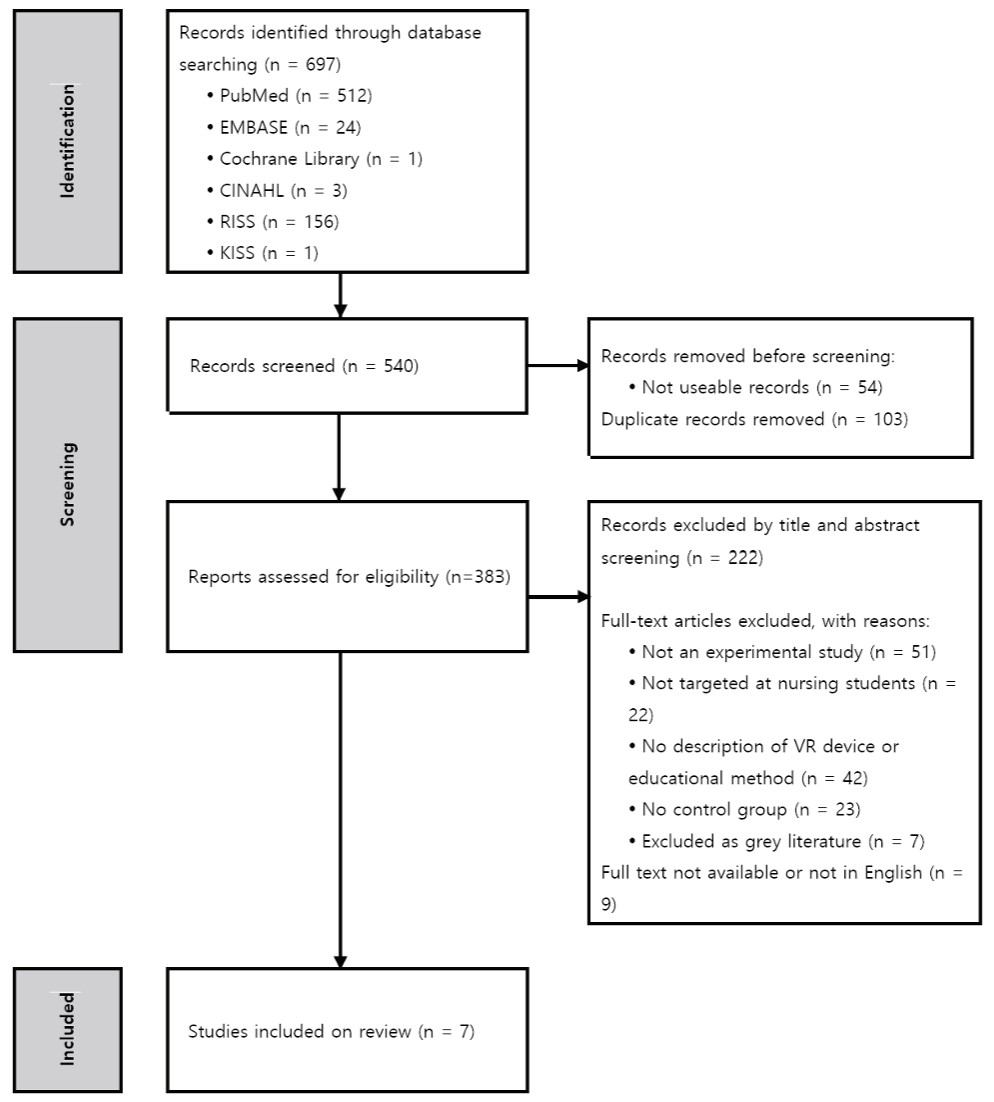Abstract
Purpose: We conducted a systematic review to evaluate the effects of a virtual reality (VR)–based simulation nursing education program on clinical competency and clinical confidence among nursing students. Methods: A systematic literature search was performed for studies published between February 2019 and February 2025 in both domestic and international peer-reviewed journals using the PubMed, EMBASE, Cochrane, CINAHL, RISS, and KISS databases. A total of 697 articles were initially identified, based on rigorous inclusion and exclusion criteria guided by the PICO-SD framework, 7 studies were ultimately included. The methodological quality of the selected studies was evaluated using the Risk of Bias Assessment Tool for Non-Randomized Studies (RoBANS). In addition, a comprehensive synthesis was undertaken regarding the general characteristics of the studies and the program-related features. Results: All seven included studies employed non-equivalent control group quasi-experimental designs and encompassed diverse nursing domains, including adult, pediatric, maternal, geriatric, and community nursing. The duration of VR simulation interventions varied from 1 day to 5 weeks, and the experimental interventions consisted of virtual reality simulation education combined with pre-lectures, post-debriefing, or supplementary activities such as high-fidelity simulations or simple skills practice for repeated learning. The measured outcome variables were clinical competency and clinical confidence, and all studies demonstrated statistically significant positive effects. Conclusion: The findings indicate that incorporating VR into nursing education programs can enhance nursing students’ clinical competency and clinical confidence in practical training. These results provide robust evidence to inform the development of VR-based nursing education and may be used as a foundation for future research in this field.
Figures & Tables

Fig. 1.Flow diagram of study selection
